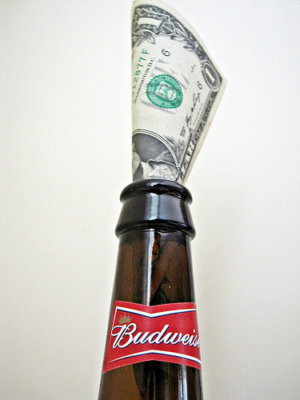Drinking Too Much Alcohol? How to Tell You’ve Lost Control
 Whether it’s sharing a bottle of wine with family at home, or enjoying a beer in a bar with friends, drinking is an enjoyable way to unwind and socialise. Of course many of us are also guilty of using alcohol in times of stress or emotional upheaval, as a short term relaxant that we can self-regulate and cease once the crisis has subsided.
Whether it’s sharing a bottle of wine with family at home, or enjoying a beer in a bar with friends, drinking is an enjoyable way to unwind and socialise. Of course many of us are also guilty of using alcohol in times of stress or emotional upheaval, as a short term relaxant that we can self-regulate and cease once the crisis has subsided.
A Guide to Determining if Your Drinking is Out of Control
If, however, you find you are drinking regularly whatever your circumstances and not thinking about the consequences? Then perhaps it’s time to ask, am I drinking too much alcohol? Is it possible I have a drinking problem? Is it even possible my alcohol use is crossing the barrier into dependency? An if so, what can I do about it?
1) Consider your limits.
The government guidelines advise that women should drink no more than 2-3 units a day. For men it is no more than 3-4 units. If you consider that a standard (4%) pint of beer or a 175ml/large glass of wine (13%) both have 2.3 units, you can see how quickly you can use up your allowance. Saving up units for one big blow out is not advisable – be aware that binge drinking is defined as drinking 6 units in one day for a woman, and 8 units for men.
2) Track your tolerance.
Drinking larger amounts than you used to, or increasingly choosing stronger proof beverages, is a sign that you are losing a handle on your alcohol use and that your tolerance is changing. The more you drink, the more your tolerance will increase.
3) Keep an honest record.
Think about whether you are drinking more frequently than usual. It could be that you’re drinking during the week in addition to the weekends, or that you find you are drinking earlier in the day. Try keeping track of when you are drinking for a week, and be honest with yourself. It’s easy to pretend you had one glass with dinner when you had two, but it doesn’t help you to do so.
And note you don’t have to be drinking daily to be drinking too much alcohol. Weekly binge drinking can be particularly dangerous for your health.
Intending to stick to ‘just the one’ but ending up getting drunk, finding that you always finish first, or encouraging others to speed up, are also all warning signs you might have a growing problem.
4) Look at your ‘where’.

By: Dave Morris
In general, regularly drinking alone is not good, particularly if it is a way to avoid family members or friends who have expressed concern about your intake of alcohol or your behaviour when drinking. We can joke about things, saying, “I’m a wine mom“. But drinking alone is drinking alone.
Again, be honest with yourself. If you are disguising your alcohol consumption in any way, or drinking secretly, this is a significant factor in crossing the barrier to dependency.
5) Look at your ‘why’.
It’s easy to slip into the practice of having a drink, but if it has simply become part of your routine, then you should be able cut down or give up for an amount of time without any significant difficulty. If this seems challenging, look at why you are drinking. Are you using alcohol to self-medicate from stress or emotional problems?
Consider too, whether you avoid situations because alcohol won’t be available, or if you feel you ‘need’ a drink, such as feeling you have to have one to boost your confidence in social gatherings. Remember that social drinking is just that, ‘social’. If there is a connection to ‘need’ there is a good chance there is a dependency.
6) Notice your ‘thinking about drinking’.
There is nothing alarming about looking forward to an event because you will be taking a drink. But if you find that you are thinking about the next drink with each one you have, or if you experience anxiety should you be unable to access alcohol, then this can indicate a level of psychological and physical dependency.
7) Keep track of health problems.
Experiencing any changes to your physical health, whether temporary or acute, needs to be taken seriously. Some of the short-term physical problems of excessive alcohol use are headaches, hangover, stomach problems, sweating, trembling and memory loss. A consistent misuse of alcohol can result in more serious health issues such as black-outs, depression, vomiting blood, and acute pains.
8) Monitor money matters.

By: Images Money
When buying alcohol becomes a financial priority, or you are feeling guilty because of the impact it is having on your finances, then it is time to pay attention to whether you are drinking too much alcohol.
And bear in mind that it may not just be the cost of the drink that can cause financial worries. The effects of alcohol can substantially alter your ability to make rational choices, which can lead to thoughtless spending that can cause anxiety at a later date. Are you constantly overspending while under the influence?
9) Clock the career damage.
Being productive in the workplace relies on clarity and commitment, both of which are impaired by alcohol. Are you constantly arriving late due to hangovers or a fuzzy morning head, not functioning as well as you used to, missing deadlines, or calling in sick after a big night out? Then you might need to reduce or give up drinking until you are back on track.
10) Be realistic about relationships.
Alcohol misuse never affects only the individual. It can cause social, physical, emotional or financial difficulties which impact family, friends and colleagues. Pay attention to whether the people around you are making subtle comments or jokes about your drinking, or how many of them seem frustrated or upset with you lately but haven’t said why. Is it possible your relationships are becoming strained or damaged because of your drinking?
5 Tips to follow if you are overdoing the drinking
If you are developing a dependency on alcohol it is sometimes possible you can change things with some focussed choices. Here are 5 ways to break your growing dependency on alcohol.
1) Make a plan.
Make sure you know the units of your drink and keep within the recommended daily guidelines. Set yourself a limit on how much you will drink, or cut back gradually each day. As mentioned, writing a record is a very good idea. It ups your commitment level and can help you keep to your intentions.
2) Reduce and hydrate.
Serve yourself a smaller measure of alcohol and swap your usual choice for a lower strength drink. Avoid using alcohol to quench your thirst (it won’t, alcohol dehydrates the body further). And drink plenty of water or mineral water in between alcoholic drinks. You could, for example, aim for one water for each alcoholic beverage.
3) Take a break.
 Whether you’ve been drinking daily or just seriously overindulged on a week’s vacation, it’s advisable to regularly take a break from alcohol. Your body needs time to process and recover. On a positive note, you may be surprised at how more energised you feel both physically and mentally after a complete break.
Whether you’ve been drinking daily or just seriously overindulged on a week’s vacation, it’s advisable to regularly take a break from alcohol. Your body needs time to process and recover. On a positive note, you may be surprised at how more energised you feel both physically and mentally after a complete break.
4) Let people know.
Allow family and friends to support you as you cut down or give up drinking. Telling people not only informs them of your intentions, but affirms to yourself that you are serious about making a change.
5) Seek help for your stress instead.
There are better ways to deal with stress then drinking. Trying some of them can not only help make the escape of alcohol less attractive, but can provide additional benefits, too. Exercise not only manages stress but it leaves you feeling good. Talking to a counsellor or coach about your stress can help you move forward in life in ways perhaps you weren’t able to see were possible.
Worried these techniques aren’t enough?
If you have tried the tips above to reduce or abstain from alcohol but are finding it difficult, or reading them are acutely aware they won’t work to stop you sabotaging your life with drinking, then this is a clear sign that you need to take action about your alcohol dependency.
The best person to determine whether you have a problem is you. You know how much, how often, where and why you are using alcohol. You may not wish to acknowledge your use openly to others, but if you know yourself that your drinking is getting out of control, chances are that you know you need to do something about it.
If you think you have a drinking problem, then you probably do. Drinkaware has comprehensive information online, and there are plenty of counselling and treatment options available.
Has this article been helpful? Share it! Have question? Ask below or post it on Facebook. We love hearing from you.
 Carolyn Hughes writes freelance for a variety of magazines and publications in the UK and the United States. A large proportion of her work specialises in addiction and mental health issues which stems from her personal story of alcoholism and depression. Her popular blog the Hurt Healer reflects her passion to help others make their own successful journey in emotional recovery and to live their life as the person they were meant to be.
Carolyn Hughes writes freelance for a variety of magazines and publications in the UK and the United States. A large proportion of her work specialises in addiction and mental health issues which stems from her personal story of alcoholism and depression. Her popular blog the Hurt Healer reflects her passion to help others make their own successful journey in emotional recovery and to live their life as the person they were meant to be.




